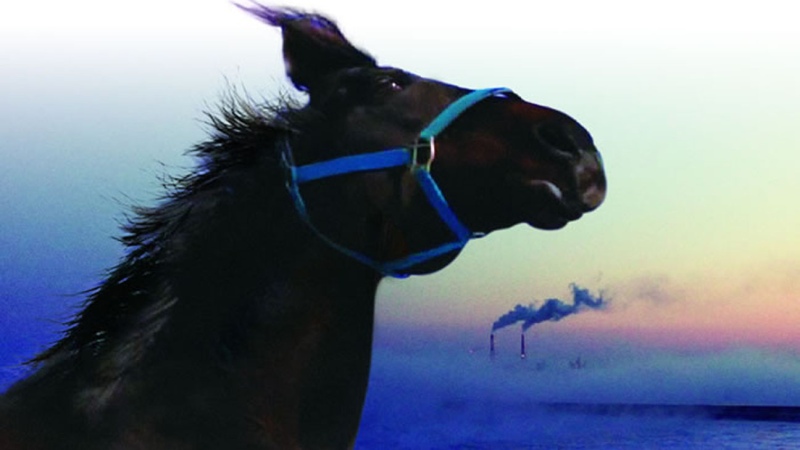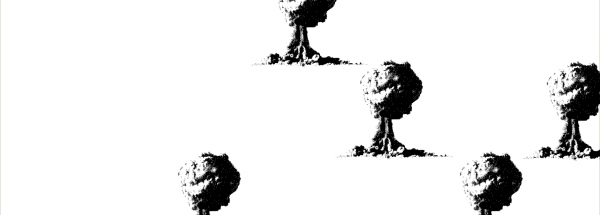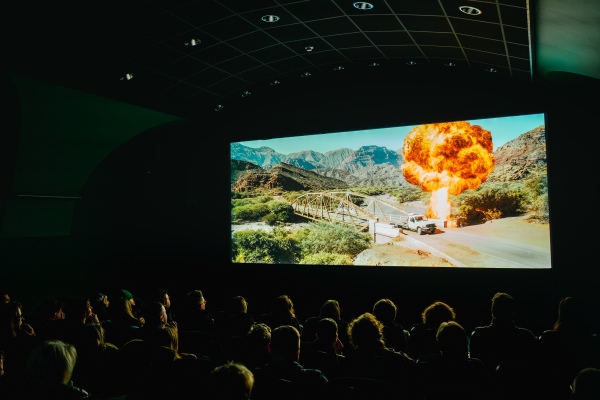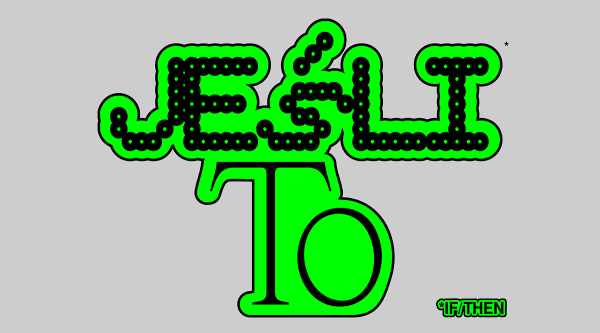See the invisible – radioactive boars
Ah Humanity! + The Horses of Fukushima + lecture by Aleksandra Brylska (English friendly)
-
Ah Humanity!
- directed by Lucien Castaing-Taylor, Verena Paravel and Ernst Karel, France/USA/Japan 2015, 23'
- The film was created as part of the Sensory Ethnography Lab, a laboratory at Harvard University dealing with visual and artistic research of social phenomena. The starting point for talking about how you can see the invisible and how visuality is disturbed in the Anthropocene era is the disaster at Fukushima. The film, shot simultaneously with a telephone and a telescope, tries to capture what which is near and far at the same time.
-
-
The Horses of Fukushima
- [Matsuri no Uma], directed by Yoju Matsubayashi, Japan 2013, 74'
- How can you show and talk about a disaster that cannot be seen? About an event that changed not only people's lives, but also the lives of other, non-human beings. The disaster at the Fukushima Daiichi Nuclear Power Plant [Unit 1 Reactor] is an example of how an event from the human world affects the environment and animal life.
-
See the invisible – radioactive boars
-
Lecture by Aleksandra Brylska
-
The lecture will be devoted to how, on the one hand, the failure of a nuclear power plant changed the status of a space, marking it with radioactive contamination, and on the other, to the symbolism inscribed by people onto the landscape and animals, enabling the telling of a story of something that is invisible. Animals play a unique and special role in this process because they have been divided into two categories, those that are being mourned and protected (domesticated and breeding species) and those that are being eliminated (wild species). Boars in particular have become the embodiment of the disaster at the Fukushima Daiichi Nuclear Power Plant – a metonymy of radioactivity, and the fight against them is also the fight against radiation, aimed at restoring the reality from before the events of March 2011.
-
- Aleksandra Brylska
-
A graduate of Art History from the Institute of Art History of the University of Warsaw as well as of Cultural Studies from the Institute of Polish Culture of the University of Warsaw. Currently, a participant in the international PhD programme Nature-Culture at the Faculty of Artes Liberales of the University of Warsaw. She is preparing her doctoral dissertation on nature and the cultural status of post-nuclear spaces, using examples of the disasters at the Chernobyl Nuclear Power Plant (in Ukraine) and the one in Ōkuma (Fukushima Prefecture, Japan). Brylska is interested in the methodology of environmental humanities, the environmental history of post-nuclear spaces, biosemiotics, and the theme of nature from philosophical and cultural perspectives. She is also interested in visual culture after World War II, the relationship between man and the environment, as well as the cultural consequences of the term "Anthropocene."
-




